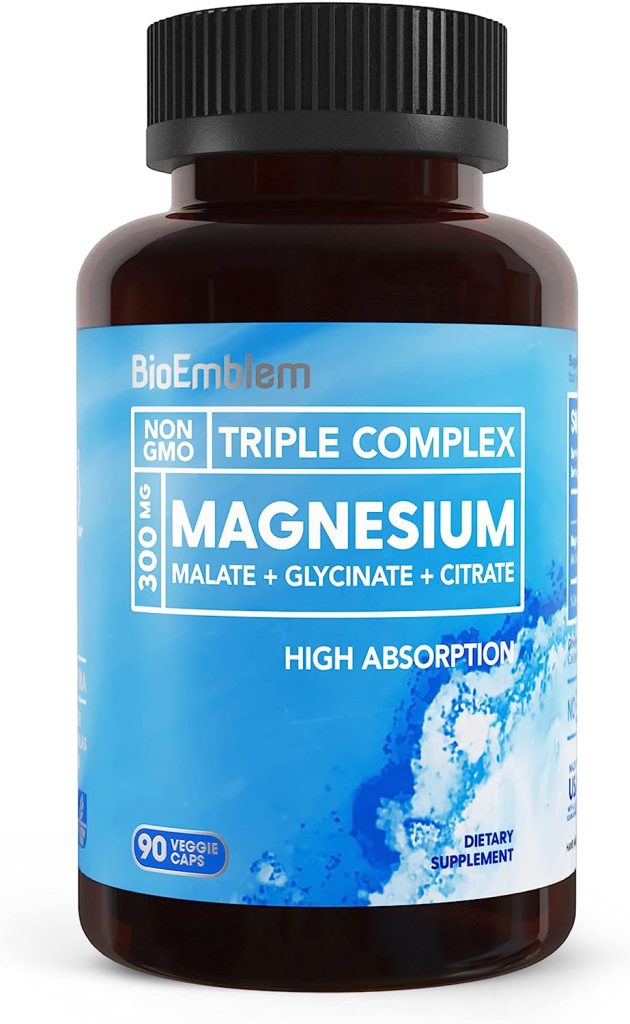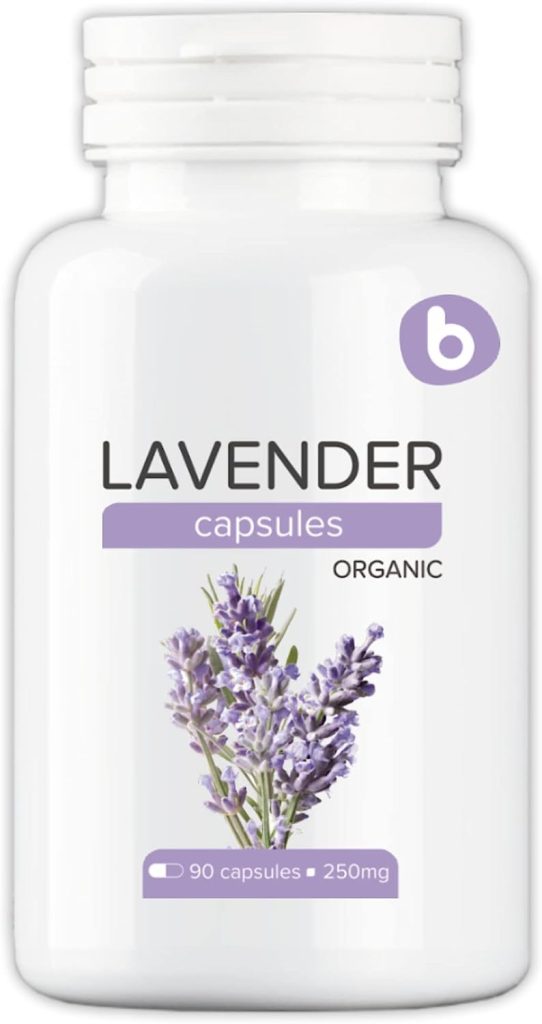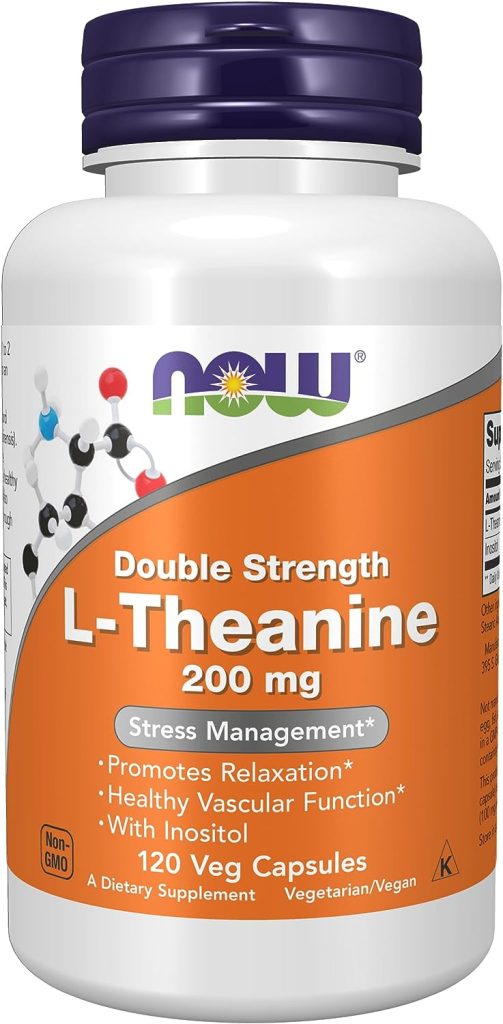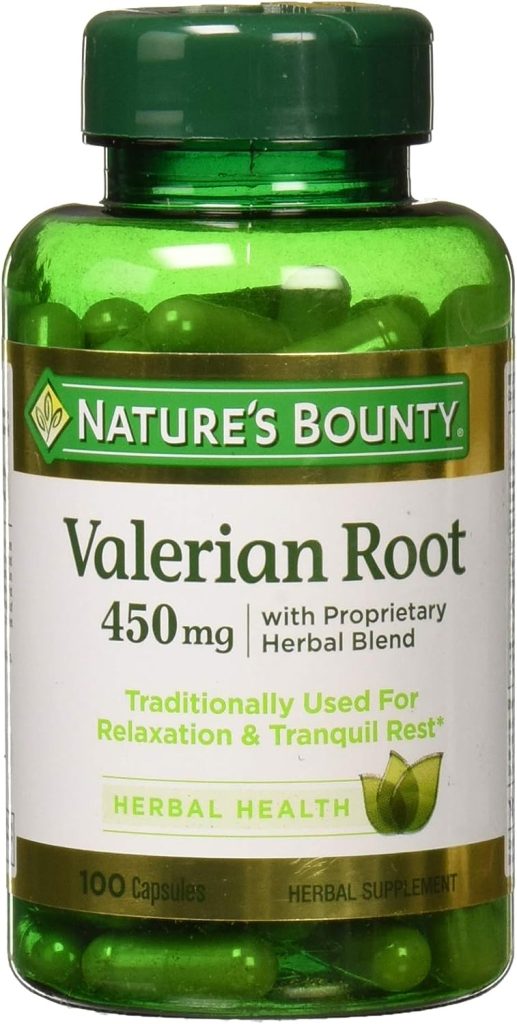Do you suffer from anxiety? If so, you are not alone. Anxiety is a common condition that affects millions of people worldwide. While there are several treatments available for anxiety, including therapy and medication, many people turn to supplements as a natural remedy. But which supplements are the best for anxiety? In this article, we will explore some of the top supplements that have been shown to help alleviate symptoms of anxiety.
Firstly, it is important to understand what anxiety is and how it manifests. Anxiety is a feeling of unease or worry that can range from mild to severe. It can be caused by a variety of factors such as stress, trauma or genetics. Symptoms may include increased heart rate, sweating, difficulty sleeping and feeling tense or nervous. While there is no one-size-fits-all solution for managing anxiety, certain natural supplements have been found to be effective in reducing symptoms and promoting relaxation. Let’s take a closer look at some of these supplements and their benefits for those struggling with anxiety.
Understanding Anxiety and Supplement Use
It’s important to understand how anxiety affects your well-being and the potential benefits of incorporating natural remedies into your daily routine. Anxiety can manifest in various forms, from mild worry to intense panic attacks, and impact your physical, emotional, and mental health. If left unmanaged, it can lead to chronic stress, depression, and other health problems. Fortunately, there are several anxiety management techniques and lifestyle changes that can help alleviate symptoms.
One effective way to manage anxiety is through natural supplements. These supplements contain plant-based ingredients such as herbs, vitamins, minerals, and amino acids that have been shown to reduce stress levels and promote relaxation. Some popular options include chamomile tea for its calming effects; magnesium for its ability to regulate mood; valerian root for its sedative properties; and passionflower for its anti-anxiety benefits.
In addition to supplement use, making certain lifestyle changes can also improve your overall well-being when dealing with anxiety. This includes getting enough sleep each night; maintaining a healthy diet rich in fruits and vegetables; practicing regular exercise or yoga; avoiding alcohol and caffeine consumption; engaging in activities that you enjoy; taking breaks throughout the day to rest or meditate; seeking social support from friends or family members.
Remember that managing anxiety is a process of trial-and-error as what works best for one person may not work for another. Therefore it’s essential always to consult with a healthcare professional before starting any new supplement regimen or implementing significant lifestyle changes into your routine. By incorporating natural remedies into your daily life alongside these positive habits you’re on track towards better managing feelings of anxiety effectively over time!
Magnesium
You can increase your magnesium intake to help combat feelings of stress and promote relaxation. Magnesium is a mineral that plays an important role in many bodily processes, including muscle and nerve function, blood pressure regulation, and the production of energy. Studies have shown that magnesium deficiency may contribute to anxiety symptoms, so increasing your intake through supplements or dietary sources can be beneficial.

However, it’s important to note that some people may have absorption issues with magnesium supplements. This means that even if you take a supplement, your body may not be able to absorb enough magnesium to make a significant difference.
In these cases, it may be more effective to focus on increasing dietary sources of magnesium such as leafy greens, nuts and seeds, whole grains, and beans.
If you’re considering taking magnesium supplements for anxiety relief, it’s always a good idea to talk to your healthcare provider first. They can help determine if you have any underlying health conditions or medication interactions that could affect how well magnesium works for you.
Overall though, adding more magnesium-rich foods into your diet or trying out a high absorption supplement could be a simple yet effective way to support your mental health.
Lavender
If you’re feeling stressed, try incorporating lavender into your self-care routine – research has shown that smelling lavender can reduce anxiety by up to 60%!
Available in convenient capsule form or aromatherapy, there are numerous ways you can benefit from it.
Lavender aromatherapy is one of the most popular ways to incorporate this calming herb into your daily routine.
Simply add a few drops of lavender essential oil to a diffuser and let the soothing scent fill the room. You can also mix it with a carrier oil and apply it topically to your skin or add it to bath water for an extra-relaxing soak.

While lavender aromatherapy is one way to reap the benefits of this herb, drinking lavender tea is another option. Lavender tea has been found to have relaxing effects on the body and mind, making it a great choice for those looking for natural ways to combat anxiety. Brew a cup of hot water and steep a bag of dried or fresh lavender flowers for several minutes before sipping slowly.
Incorporating lavender into your self-care routine through aromatherapy or tea may not cure all forms of anxiety, but it can certainly help alleviate symptoms in some cases. Give these natural remedies a try next time you’re feeling overwhelmed or anxious – you might be surprised at just how effective they can be!
Ashwagandha
If you’re looking for a natural supplement to help with anxiety, Ashwagandha is worth considering. Studies suggest that it may reduce symptoms of anxiety and stress, while also improving overall wellbeing. The recommended dosage is typically around 300-500mg per day, but it’s important to talk to your healthcare provider before starting any new supplement regimen. While side effects are generally mild or nonexistent, some people may experience digestive issues or drowsiness.
Benefits for Anxiety
Imagine feeling calm and collected, with a clear mind and steady breathing, as you go about your day – incorporating certain natural remedies into your routine can help provide these benefits. One such remedy is ashwagandha, an herbal supplement that has been used for centuries in traditional Ayurvedic medicine to treat anxiety and stress-related disorders.
Research studies have shown that ashwagandha can help reduce cortisol levels, which are often elevated in people who suffer from chronic stress and anxiety. A study published in the Journal of Alternative and Complementary Medicine found that participants who took ashwagandha supplements had lower cortisol levels compared to those who took a placebo. Additionally, this herb has been found to have potent anxiolytic properties, which means it can help reduce feelings of anxiety and promote relaxation without causing drowsiness or sedation. Overall, incorporating ashwagandha into your daily routine may be an effective way to manage symptoms of anxiety naturally.
Recommended Dosage
Now that you know about the benefits of supplements for anxiety, it’s important to understand how much you should take. The recommended dosage depends on the specific supplement and your individual needs. Taking too much or too little can be ineffective or even harmful, so it’s important to follow the recommended guidelines.
It’s also important to approach supplement use with caution and safety in mind. Always consult with a healthcare professional before starting any new supplement regimen, especially if you are taking medication or have a pre-existing medical condition. Additionally, make sure to choose high-quality supplements from reputable sources and carefully read labels and instructions for proper use. By taking these precautions and following recommended dosages, supplements can be a helpful tool in managing anxiety symptoms.
Potential Side Effects
Be aware of possible adverse reactions when taking supplements to manage anxiety, and always consult with a healthcare professional before beginning any new regimen. While supplements may be natural, they can still have potential side effects that could harm your health. For example, long-term use of some supplements such as kava or valerian root may lead to liver damage or digestive problems. It is important to discuss the risks and benefits of using these supplements with a doctor before starting them.
Additionally, some supplements for anxiety may interact negatively with prescription medications you are already taking. For instance, St. John’s Wort is known to interfere with certain antidepressants and birth control pills. This underscores the importance of informing your healthcare provider about everything you take, including vitamins and herbal remedies. By doing so, you can minimize any drug interactions that could cause unwanted side effects or reduce the effectiveness of your medication regimen.
L-Theanine
You can reduce stress levels by incorporating L-Theanine into your daily routine, as research has shown it to increase alpha brain waves associated with relaxation and decrease beta brain waves linked to anxiety. This amino acid is found in green tea and is also available as a supplement. L-Theanine works by increasing the production of GABA, a neurotransmitter that promotes calmness and reduces anxiety.

Numerous scientific studies have demonstrated the health benefits of L-Theanine for reducing anxiety symptoms. For instance, one study found that participants who took 200 mg of L-Theanine had reduced heart rate responses to stress compared to those who did not take it. In another study, individuals with generalized anxiety disorder experienced significant improvements in their symptoms after taking 400 mg of L-Theanine per day for eight weeks.
If you are looking for a natural way to alleviate anxiety symptoms, consider incorporating L-Theanine into your daily routine. While it is generally safe and well-tolerated, be sure to speak with your healthcare provider before starting any new supplement regimen. Additionally, keep in mind that while supplements like L-Theanine can be helpful tools for managing anxiety, they should not replace other evidence-based treatments such as therapy or medication if they are recommended by a healthcare professional.
Valerian Root
If you’re looking for a natural way to ease anxiety, valerian root may be worth considering. Some studies suggest that valerian root can help reduce symptoms of anxiety by promoting relaxation and improving sleep quality. However, it’s important to note that the recommended dosage varies depending on the form of valerian root used and potential side effects include dizziness, headaches, and upset stomach.

Benefits for Anxiety
Feeling overwhelmed and stressed? Discover how incorporating natural remedies into your routine can help calm your nerves and promote a sense of tranquility. Valerian root, an herb commonly used in alternative treatments for anxiety, has been shown to have several benefits.
Valerian root is known for its calming effects on the body and mind. It works by increasing levels of GABA, a neurotransmitter that helps regulate mood and reduce anxiety. Research has also shown that valerian root can improve sleep quality, which is important for those dealing with anxiety as lack of sleep can exacerbate symptoms. Additionally, valerian root has been found to have few side effects and is generally safe for most people to use. Incorporating valerian root into your daily routine may be a natural and effective way to manage anxiety symptoms without relying on prescription medications or other synthetic substances.
Recommended Dosage
Looking to incorporate a natural remedy into your routine for calming effects? Consider trying valerian root. This supplement has been shown to increase GABA levels, which helps to calm the nervous system and reduce anxiety symptoms. Additionally, valerian root has been found to improve sleep quality, making it an ideal option for those who struggle with both anxiety and insomnia.
When taking valerian root, it is important to follow the recommended dosage instructions on the packaging or as directed by a healthcare professional. The ideal timing for taking this supplement may vary depending on individual needs and preferences, but it is generally recommended to take it before bed or during periods of high anxiety. Keep in mind that while valerian root is generally considered safe, there are potential risks associated with its use such as dizziness and headaches. As with any supplement or medication, it is always best to speak with a healthcare provider before starting use.
Potential Side Effects
Be aware of the potential risks associated with valerian root, as there are some side effects such as dizziness and headaches. Although it is generally safe for most people, taking high doses of valerian root may lead to liver damage in rare cases. It is important to take the recommended dosage and not exceed it without consulting your healthcare provider.
Additionally, valerian root may interact with other medications you are taking. Be sure to inform your doctor if you are currently taking any prescription or over-the-counter drugs before adding valerian root to your supplement regimen. Long-term use of valerian root may also have some adverse effects such as dry mouth and vivid dreams. It is best to talk to your healthcare provider before using this supplement regularly for an extended period of time.
Passionflower
Passionflower, known for its calming effects, has been used for centuries as a natural remedy for stress and nervousness. This herb is a perfect choice if you’re looking for a supplement to help reduce anxiety symptoms without causing any harmful side effects. Passionflower contains flavonoids that work by increasing the level of gamma-aminobutyric acid (GABA) in your brain – a neurotransmitter that helps regulate mood and feelings of relaxation.
Several studies have shown the health benefits of passionflower in reducing anxiety levels. A 2016 study published in the Journal of Clinical Pharmacy and Therapeutics found that participants who took passionflower extract reported significant improvements in their anxiety symptoms compared to those who received a placebo. Another study published in the Iranian Journal of Nursing and Midwifery Research showed that passionflower supplements were effective in reducing anxiety levels among women undergoing cesarean section surgery.
When it comes to dosage recommendations, passionflower is available in different forms such as capsules, teas, and tinctures. The recommended dosage varies depending on the specific product you’re using, so always check the label or consult with your healthcare provider before taking any supplements. In general, most passionflower products recommend taking 500mg to 1 gram per day for anxiety relief.
Incorporating passionflower into your daily routine can be an effective way to manage your anxiety symptoms naturally without worrying about any potential side effects. However, like with any supplement or medication, it’s essential to talk with your doctor before starting any new treatment plan. With its calming properties and proven effectiveness, passionflower may just be what you need to find some peace amidst life’s stresses.
Frequently Asked Questions
Are There Any Potential Side Effects of Taking Supplements for Anxiety?
When it comes to taking supplements for anxiety, it’s important to consider the potential long term effects and dosage considerations. While some supplements may provide temporary relief, they can also have negative side effects if taken in excess or for extended periods of time. For example, high doses of certain herbs like kava or valerian root can cause liver damage or interfere with other medications. It’s always best to consult with a healthcare professional before starting any new supplement regimen and to follow recommended dosages carefully. Remember that supplements are not a substitute for proper medical treatment and should be used as part of a comprehensive approach to managing anxiety.
Can Supplements for Anxiety Be Taken Alongside Prescription Medication?
Combining supplements and medication for anxiety can have both pros and cons. On one hand, supplements may be able to enhance the effects of medication or reduce certain side effects. On the other hand, there is a risk of interactions between supplements and prescription drugs, which may lead to negative side effects or reduced effectiveness of either treatment. It is important to talk to your doctor before taking any supplements for anxiety alongside medication. Your doctor can help you determine whether it is safe and effective to combine these treatments, as well as advise you on any potential risks or precautions. Be sure to disclose all medications and supplements you are taking, including dosages and frequency of use. This information will allow your doctor to provide personalized recommendations for managing your anxiety symptoms safely and effectively.
How Long Does It Take for Supplements for Anxiety to Start Working?
Starting with the Current Topic, it typically takes a few weeks for supplements for anxiety to start working. This is because they work by gradually building up in your system and promoting healthy neurotransmitter function. However, there are ways to improve their effectiveness and monitor progress while taking them. To improve effectiveness, try taking supplements alongside healthy lifestyle habits such as regular exercise, balanced nutrition, and stress reduction techniques like meditation or therapy. To monitor progress, keep track of any changes in your symptoms or mood over time. It’s also important to speak with your healthcare provider before starting any new supplement regimen to ensure safety and proper dosing. By incorporating these tips into your routine, you can optimize the benefits of supplements for managing anxiety symptoms.
Are There Any Dietary Restrictions when Taking Supplements for Anxiety?
When taking supplements for anxiety, it is important to be mindful of any potential dietary restrictions. However, incorporating mindfulness practices into your daily routine can also provide significant benefits for managing symptoms of anxiety. In addition, herbal remedies such as chamomile and valerian root have been shown to have calming effects on the body and may be helpful in reducing anxiety levels. It’s important to consult with a healthcare professional before starting any new supplement regimen, especially if you have existing medical conditions or are taking medication. Overall, a holistic approach that combines supplements with lifestyle changes such as exercise and stress management techniques may be the most effective way to manage anxiety.
Are There Any Supplements that Should Be Avoided when Managing Anxiety?
Are you looking for supplements to manage your anxiety? While there are many natural remedies available, it’s important to be mindful of the supplements you choose. Some supplements can actually worsen anxiety symptoms and should be avoided. For example, caffeine-containing supplements like guarana or green tea extract can increase heart rate and trigger anxiety in some individuals. Similarly, kava root supplements have been linked to liver damage and should not be taken long-term. It’s always best to consult with a healthcare professional before starting any new supplement regimen for anxiety management. In addition, incorporating lifestyle changes such as exercise, mindfulness practices, and a balanced diet can also help alleviate symptoms of anxiety.
Conclusion
So, there you have it – a range of supplements that can help ease the symptoms of anxiety. It’s important to remember that while these supplements may be helpful, they are not a substitute for professional medical advice and treatment. Always speak to your doctor before starting any new supplement regimen.
When it comes to managing anxiety, everyone’s journey is unique. Finding what works best for you may take some trial and error, but with patience and persistence, you’ll get there. Remember: Rome wasn’t built in a day! Take the time to explore different options and be kind to yourself along the way. And who knows? You might just find your “silver bullet” – that one solution that really clicks and makes all the difference in the world.